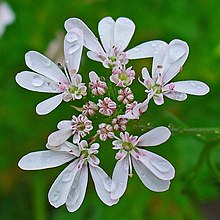
Chemicals derived from coriander leaves were found to have antibacterial activity against Salmonella choleraesuis, and this activity was found to be caused in part by these chemicals acting as nonionic surfactants.
Coriander has been used as a folk medicine for the relief of anxiety and insomnia in Iran. Experiments in mice support its use as an anxiolytic. Coriander seeds are used in traditional Indian medicine as a diuretic by boiling equal amounts of coriander seeds and cumin seeds, then cooling and consuming the resulting liquid. In holistic and traditional medicine, it is used as a carminative and as a digestive aid.
Coriander has been documented as a traditional treatment for diabetes. A study on mice found that coriander extract had both insulin-releasing and insulin-like activity.
 Coriander seeds were found in a study on rats to have a significant hypolipidemic effect, resulting in lowering of
levels of total cholesterol and triglycerides, and increasing levels of high-density lipoprotein. This
effect appeared to be caused by increasing synthesis of bile by the
liver and increasing the breakdown of cholesterol into other compounds.
Coriander seeds were found in a study on rats to have a significant hypolipidemic effect, resulting in lowering of
levels of total cholesterol and triglycerides, and increasing levels of high-density lipoprotein. This
effect appeared to be caused by increasing synthesis of bile by the
liver and increasing the breakdown of cholesterol into other compounds.
Coriander juice (mixed with turmeric powder or mint juice) is used as a treatment for acne, applied to the face in the manner of toner.[citation needed]
Coriander can produce an allergic reaction in some people.
| < Prev | Next > |
|---|
